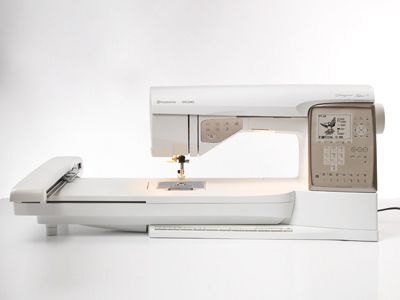
In my recent post, “A Buyer’s Guide to Your Dealership,” I asked you to share your thoughts, suggestions, and experiences about buying a sewing machine. Your responses were great! Here is what some of you had to say:
LillieB and KathleenSews both suggested “test driving” on your own materials. Kathleen says, “I make up kits with the kinds of fabrics I sew on, the needles I like to use and specialty thread.”
MarieSainte and Ipodgrannie recommend purchasing the best machine you can.
Mariesainte: “I think buy a machine requires careful self assessment…. Also, how much do you like to stretch your skills? When I bought my old Bernina, it was the most versatile machine I had ever had, and I learned over time to use and appreciate its many beautiful features. It helped me expand and stretch my skill and gave me confidence to tackle projects I wouldn’t have considered.”
Ipodgrannie: “I went with the top of the line Bernina at the time, didn’t use all the features at the time, but I sure do now 20 years later.”
Dbtomczak agrees with them but also points out that some used machines also make fabulous new machines.
“Buy from a dealer, and establish a relationship. If you are new to sewing, buy the best quality machine you can afford, not necessarily the one with the most features…. An excellent machine doesn’t have to be new.”
Darylquilts talks about great used machines but also wisely cautions to not over buy.
“ NO one machine does it all. Price is not always an indicator of a good machine. Used machines can be just as good as new, it depends on where to buy them and what they are. Do your homework to see what the going rate is. Some older machines still have a high price tag because they are classic workhorses. …Buy a machine that suits your needs today and not in the future. They are always coming out with new machines that do practically everything. …You may never use all the features/functions and they could be outdated by the time you want to use them.”
SewcietyMaven and SewTruTerry both talk about doing your research. SewcietyMaven says, “I always consult Consumer Reports magazine.” And SewTruTerry says to “Look for someone that is knowledgeable about the machines and sewing in general. Also [look for] convenience of hours of operations and location.”
Thank you all for your great input! Not everyone who contributed is listed here so be sure to check out all the original blog comments.
The overall consensus? Don’t over-buy, but get the best machine for YOU as possible. Do your research and don’t be afraid to ask many questions. Take your own fabrics and supplies to test. And don’t discount a good used machine.
Do you have any other advice to add?


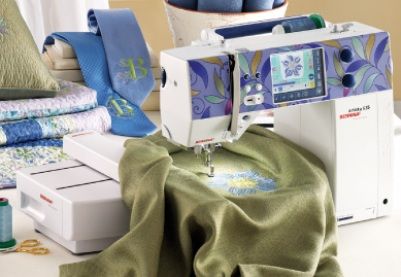
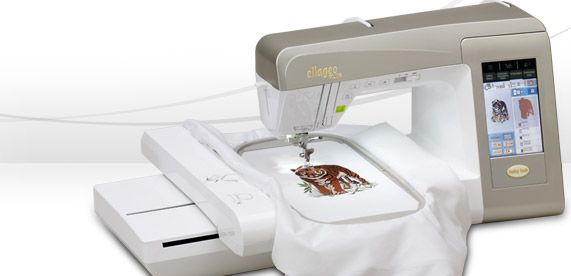
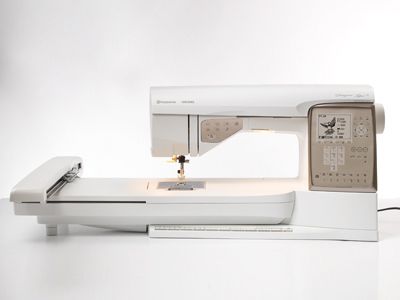
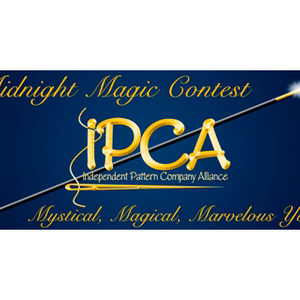
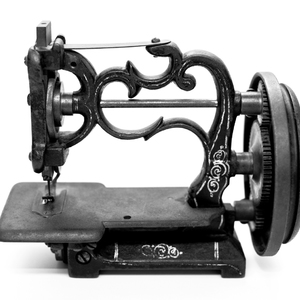





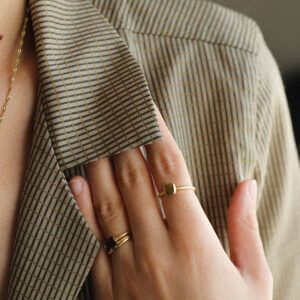
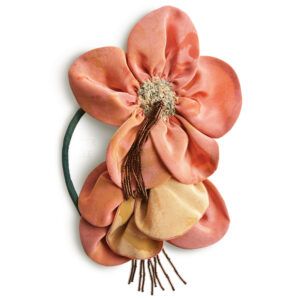
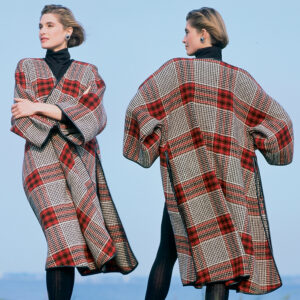
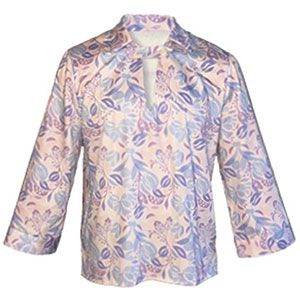
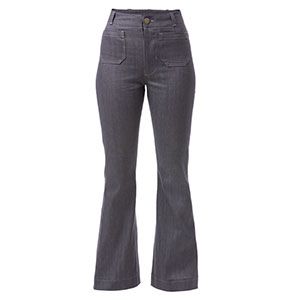
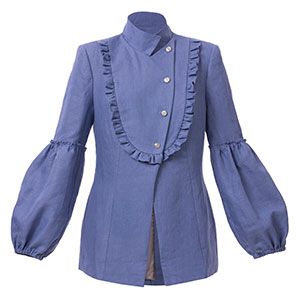
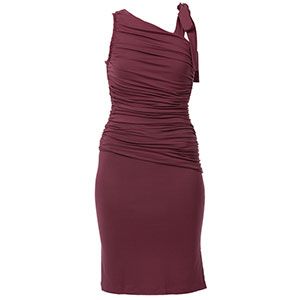
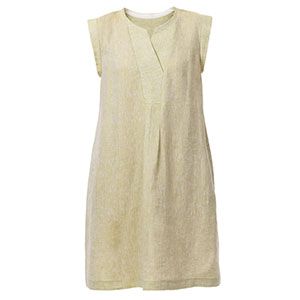
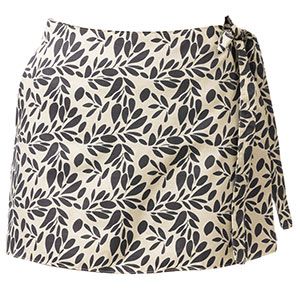
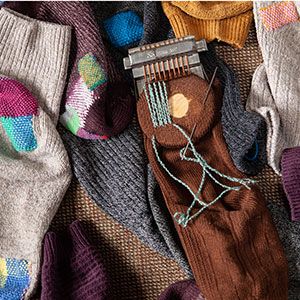
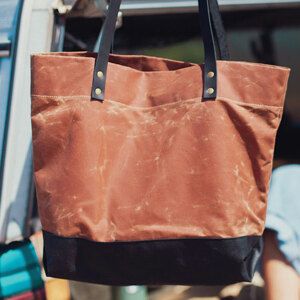
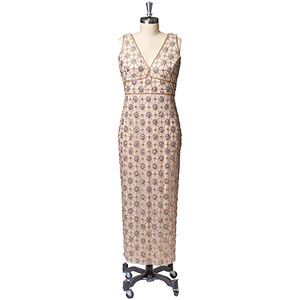
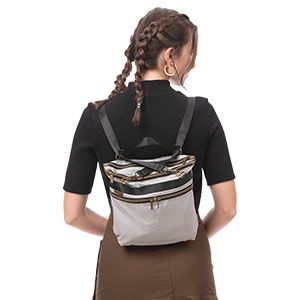
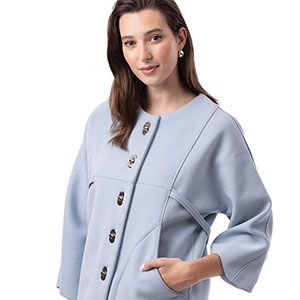
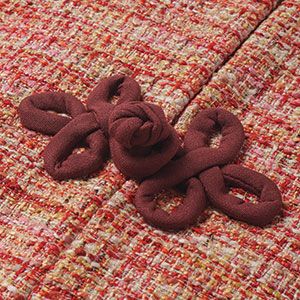
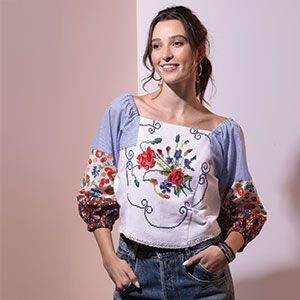

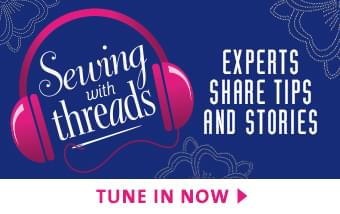

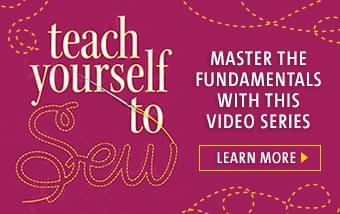



Great advice compilation!
I grew up on my mom's Singer, now 30 years old. I had a basic Kenmore for awhile, but all the manual controls drove me crazy. I knew when I got a new machine, I wanted something similar to her's and that would last me just as long. Her advice to me was to get something that I will grow in to but not out of. I ended up purchasing a Viking Sapphire - it does everything I want it to do now, and will use and want in the future without being too much.
My advice is to seriously consider your dealer, especially if you are new to sewing. Look for a dealer that offers classes and events, has a helpful, knowledgeable staff that doesn't pressure you to buy on your first visit.
The right dealer can make the difference between an exciting new endeavor or a frustrating buying experience.
I also second everything said about buying the best machine you can afford that has the features you need. A cheap machine will only end in frustration and discouragement. Most dealers accept trade-ins, so once you've mastered your machine you can think about trading up to one with more features.
You should also check out the dealer. If you are fortunate to live in an area where there are two or more dealers of your chosen brand, visit them all and spend some time asking questions. If you can, find customers of the various dealers and ask them whether they are pleased.
Support is an important part of a successful customer-dealer relationship, so you should take time to investigate how good the support will be.
I was living in a sewing machine cave. I always thought that I would like a serger. Standing in line to get into a quilt show, this sewer ahead of me said words that changed my life, she said, "Go see Fred at Pocono Sew and Vac. Believe what Fred says." Fred is 'the man.' Believe!
I am just in the process of deciding whether or not to purchase a serger and a better machine. I bought the top of the line Kenmore as soon as I moved away from my parents home. After 35 yrs. it is still a workhorse, but does not do many of the stitches that new ones can. Also, no matter what I did, it would not sew faux suede. So I bought an electronic Singer - far from the top of the line, but it makes sewing so much more enjoyable.
My friend who has been sewing for dance classes for 25 yrs.is no longer able to sew. She has a Pfaff machine and a Pfaff serger that I can buy from her. Both are very good machines, probably top of the line when she bought them, and I don't think they are 25 yrs. old but they have definitely been around for a few yrs.
Does anyone have experience with this brand - sewing machine and serger? Can you give me any advice?
Someone said, "Don't buy a machine for the future." I disagree. I think you should consider what you would like to be sewing in the next five years so you don't buy a machine that you outgrow quickly. Consider that you may want to learn to quilt, or learn machine embroidery, or sew good clothing. Buy good quality. If you know people who sew, ask what machine brand they like and why.
Three years ago I bought a used Bernina Artista 180 from a friend. I had admired her embroidery on her garments. I visited the dealer to take some lessons. To make a long story short, I bought an Artista 730 this year. I have had the machine 7 months and am still taking the free mastery lessons the dealer offers. I look at the web sites of other Bernina dealers and visit them in other cities. I can honestly say Loving Stitches in Fayetteville, NC, has to be one of the best dealers there is. My sewing machine is a "computer that just happens to sew". There is no way I could have learned to used it by reading a book. My recommendation is to find the best dealer you can. There are women in my classes that are driving in from almost 200 miles away because of the excellent dealer here. Any machine will sew, but if you don't know how to use it you will not use it.
There are many good brands of machines on the market. To me. dealer support is what makes the difference. Support with classes, servicing, accessories, etc. I happen to have an excellent Bernina dealer and my sewing room is populated with Bernina sewing machines, serger and I have the Bernina embroidery software.
My Elna Supermatic from the 1960's is still my favorite. It was top of the line then, a portable, with buttonholes, edge embroidery and stretch stitches, and a knee control instead of a foot pedal. Best of all is that I can open up all the areas and keep it clean and oiled. Newer accessories will fit on it and parts are still available. The adjustable needle position coupled with a regular zipper foot enables me to install all types of zippers, even invisible ones. List the enjoyable and unenjoyable jobs you have to accomplish in your sewing life. Find the dealer with the machine that will keep the former and solve the problems with the latter. Be picky.
My first sewing machine was a singer . It was so frustrating because I was always having to change the tension, and it would not sew over thicker fabrics. I was given an Elna for that Christmas and used it for 19 years. I gave it to my daughter when I bought an Elna computerized. Sewing machine. I used it until the reverse would not work as well as a couple of other things. I now have a Husquavarna with which I am pleased We bought a winter place in Phoenix . I had my Elna looked at down here and they were able to fix it and I now use it when we are here. It looks as though I have the best of both worlds
Get to know your DEALER,FIRST,& the sales associate that helps you. They are your friends. Lessons are important (my dealer gives lessons on ALL machines purchased from them) and get to know the repair person. Sometimes a great used machine is the perfect choice, especially if the machine was used as a trade-up. Some of the older machines are great, especially if the repair dept has COA, (cleaned, oiled & adjusted)and recommends it. Check warranty & if extended contracts are available. As far as all machines go, take your test fabrics, threads, needles, when you try them. A basic machine for couture will do a perfect straight stitch, a good buttonhole, and knit & seam finishes. I' not a quilter. BUT look at to top of the line of all makes,you may not want all the bells & whistles, but see what the new machines can do. Do not under buy, as in a lesser model, as new techniques and the machine ability to do them are really fun. Your price range will be important, so look at all of your options of used rather than new. I have traded/sold too machines I want back! Sharon Anne Fallon
I have sewn for many years and had LOTS of different brands of sewing machines while I taught home economics. I personally own a Pfaff 1221 which I have not ever wanted to replace. It will do everything it ever needed to do. It has sewn very sheer on up through layers of denim with ease. (I think Pfaff was one of the first to develop a very dependable walking foot.) I used to sew garments for my family all the time--sequin prom dresses, satins, velvets, tailored garments--basically whatever was in style and needed.
I also have my Mama's old Singer from the 1950's that never misses a beat piecing quilts. I carry a little lightweight Brother Computerized Runway 5000PRW to our quilt guild's sit and sew. My inexpensive Brother serger has served me well in making many garments.
One of the keys of use for any machine will be to use it as it was designed to be used and keep it clean and PROPERLY lubricated where required.
So, samlilypepper, if you "know" the Pfaff and trust the person, I would go with the Pfaff in a heartbeat! Maybe she would let you take it to a reputable dealer for cleaning and an opinion???
Advice I'd give to a new comer on buying a sewing machine, from my own experience with purchasing 4 machines.
Do your homework first and dont buy the first machine you see.
Try the demo machines if you are able to at the dealer's. This will give you a feel for the machine and how it sounds. If you dont like the sound of the machine, dont get it! You will be spending hours with that sound.
Keep the price range within it being bought debt free. This can be either cash or maybe even Lay By (lay away) over several months.
Purchase a machine that you can grow into.
Preferably a mid range machine, but the best you can afford in that range.
A straight / zigzag with a couple fancy stitches is fine for an absolute beginner, but if you start to get serious about your sewing, it will be quickly out grown.
But, at the same time dont buy a machine that is so far advanced that it will intimidate you... ie. the top of the range embroidery with all the bells and whistles and computer jazz.
Save up for that one at a later date!
Don't hesitate to purchase the "Demo" model of the machine you like that is in your budget range. Being a demo and having been used, you may find the price reduced.
Dont be afraid of purchasing second hand.
The machine still has a lot of life left in it if it is not a computerised one.
Be a bit more cautious with the computerised machines second hand. They can still be great machines, but are the computer boards still replaceable? Are the parts available? How much will it cost to replace the board if it breaks down? Find out the history of the machine, its age, was it top of its range in its day?
Where was the machine manufactured?
Does the machine still have its manuals?
My first sewing machine was a little Husqvarna Optima 120, second hand for $200. Straight and zigzag and a couple fancy stitches. I still have it and all its bits 36 yrs later. It still works well. It was made in Sweden. Great workmanship!
My second machine was a second hand Husky lock, probably mid range but not the top of its class. I dont know how old it is, but it has been a fantastic machine and I still have it, 14yrs later, not willing to part with it. Purchased for $350. Made in Sweden and great workmanship.
My third machine was also second hand. At $400, about 10years old, the top of its range in its day. A Husqvarna Prisma; my introduction to computerised machines. Its feet and the Optima's were inter changeable which was really great.
My sewing advanced quickly at this stage to the point I quickly out grew it and the machine's computer board broke down at the same time! It was going to cost about the same to replace the board as what I paid for the machine...
I was taking creative sewing classes and in the process of making a French Heirloom Christening gown which was technically beyond the Optima. I had to find a machine that I could keep growing into.
In class there were mostly Pffaf embroidery machines as well as Bernina and a couple Elna. Some purred others sounded like noisy old chaff cutters! I loved my quiet Husvarna machines and went looking for another Husqvarna.
I was shown the top of the quilting range and the beginning of the embroidery range machines. I'd have loved to have had the embroidery machine but it was out of my budget.
I tried the top of the quilting range computerised Lily 550 demo machine that was for sale and loved it. It handled well, purred, had more menus, stitches, buttonholes and letters than I'd use immediately which would allow me to grow into it. It had the stitches I needed for Heirloom sewing. Its $1,800 price tag was reduced from over $2,000 and I could put it on layby and pay it off over three months. It was made in Sweden. It came with a free lesson.
I loved using the machine from the day I took it home.
Eleven years later, I have not out grown the machine and it is still purring along as happily as when I first bought it.
The Lilly 550 has sewn the heirloom Christening gown, embroidered blankets, quillos, quilt covers, heavy velvet upholstery fabrics and piping, fine organza, laces and bridal satin in the wedding gown, curtain materials, wool, silks, you name it. It has also travelled extensively within Australia, to New Zealand and accompanied me this year to New Caledonia.
If I had to replace the Lilly... you guessed it... it would be another Husqvarna/ Viking, possibly from the embroidery range, but I'd have to save up for that!!
This article was from 2011 and I've just spotted it. Best advice I can offer is talk to a few shops that sell various machines and, most important, talk to the people who fix them. I'm back in the southwest now and still get my machines serviced and cleaned on a regular basis [very important]. I was looking at other machines and spoke with one of the technicians who did not lean towards any brand. He said the newer machines have a lot of plastic in them which wears out, and encouraged me to keep my Pfaffs [both made in Germany] which I got in 1998 or so. No matter what appliance you buy, it's always wise to call the people who fix them for a relatively unbiased opinion.
My first machine was [I believe] a Brother that felt like it weighed 100 lbs...all metal w/cams-my military husband bought it for me in 1969. My mother-in-law taught me to sew on a Necchi she'd had for many years. I made everything on the Brother until 1978, then ended up with a Kenmore [stretch stitch!]. In the late 1990's I started quilting and decided to get a new machine. Started with the Elna that beeped everytime you touched it, so I turned it in for a Pfaff and a Pfaff serger and have never looked back. The serger is temperamental when it comes to its cover stitch [everything has to be perfect], but it does a good job.
I've started to sew a lot more lately. I thought it would fun to make quilts for my family. It would be a nice gift that I could work on. http://moresewforyou.com